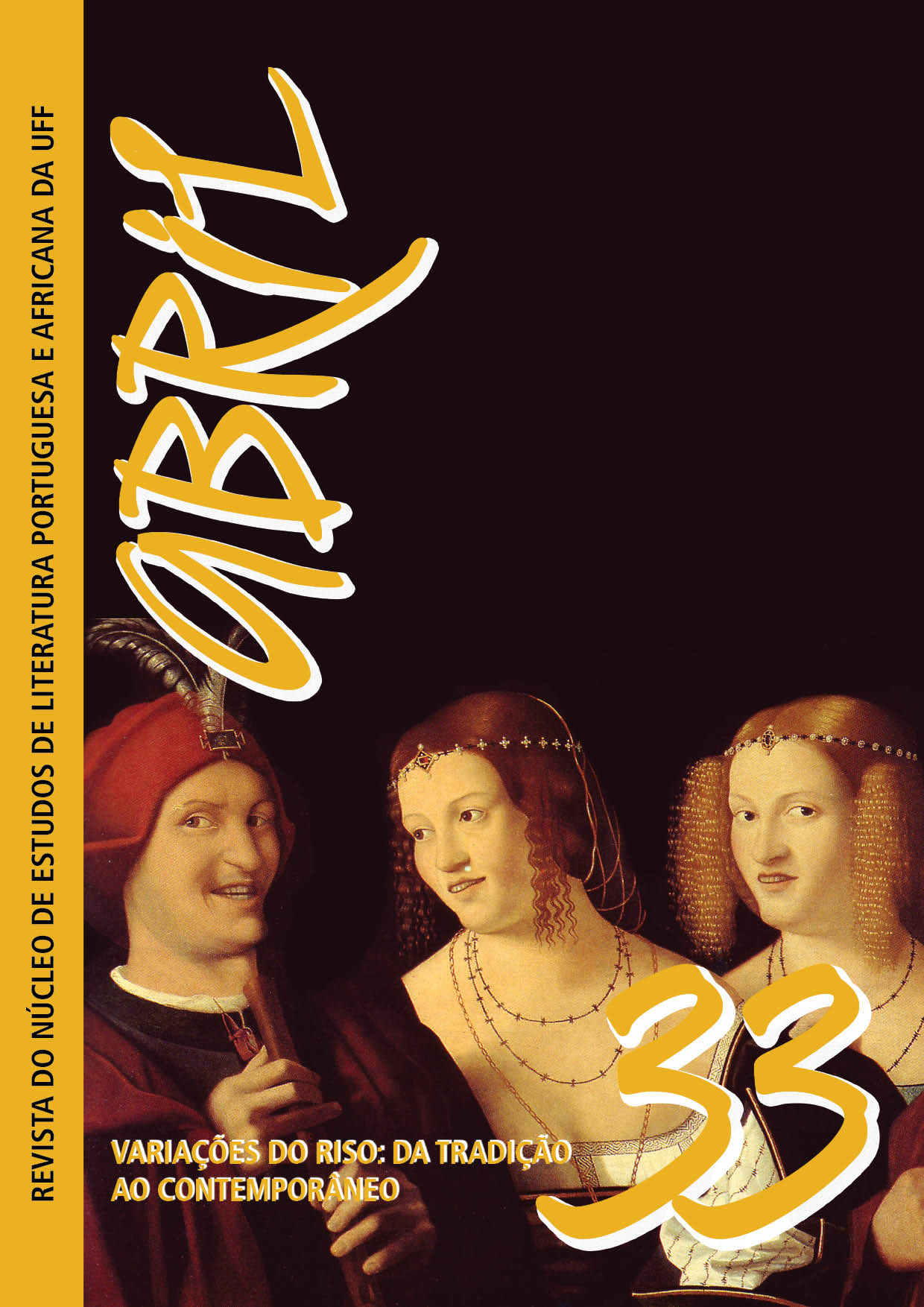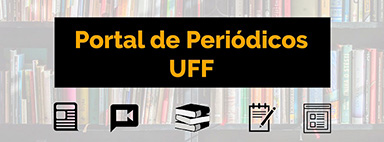Entre o poético, a infância e a (nova) utopia: o riso
DOI:
https://doi.org/10.22409/abriluff.v16i33.62775Palavras-chave:
Riso, Infância, Utopia, LevezaResumo
Este artigo propõe analisar a presença do riso e de seus mecanismos, tais como o jogo irônico, a comicidade e o humor, cultivados sobretudo por personagens marginais, dos quais se destacam as crianças, na obra Avóde- zanove e o segredo do soviético (2009), de Ondjaki. Através da observância dessa recorrência temática, na obra, objetiva-se perceber como o riso confi- gura-se como um elemento de desnudamento de questões problemáticas no ambiente distópico do pós-independência do mesmo modo que se constitui como instrumento para a manutenção da utopia e do sonho. O percurso analítico percorre bases teóricas sobre o risível e seus mecanismos, a partir das teorias de Verena Alberti, Wladimir Propp e Henri Bergson associados a outros pesquisadores do tema, e como elas se associam com a ideia de leveza, defendida por Ítalo Calvino, e com o otimismo que é observada na produção literária do autor angolano.
Downloads
Referências
ALBERTI, Verena. O riso e o risível na história do pensamento. Rio de Janeiro: Jorge Zahar, 2002. (Coleção Antropologia Social).
ALVES, Maria Theresa Abelha. Gil Vicente sobre o signo da derrisão. Feira de Santana: UEFS, 2002.
BAKHTIN, Mikhail. A cultura popular na Idade Média e no Renascimen- to: o contexto de François Rabelais. Trad. Yara Frateschi Vieira. 5ª ed. São Paulo: Annablume, Hucitec, 2010.
BERGSON, Henri. O riso: ensaio sobre a significação da comicidade. Trad. Ivone Castilho Benedetti. São Paulo: Martins Fontes, 2004.
CALVINO, Ítalo. Seis propostas para o próximo milênio. Trad. Ivo Barroso. 3ªed. São Paulo: Companhia das Letras, 2012.
COUTO, Mia. “Que África escreve o autor africano?” in: . Pensa- tempos: artigo de opinião. 2ª ed. Lisboa: Editorial Caminho, 2005. p.59-63.
HERINGER, Elisangela Silva. Meninos que lutam com risos: uma leitura de “Quem me dera se onda, de Manuel Rui, e de Avódezanove e o segredo do soviético, de Ondjaki”. 2014. 106 f. Dissertação (Mestrado em Estudos Lite- rários) – Instituto de Letras, Universidade Federal Fluminense, Niterói, 2014.
JACOBY, Russell. O fim da utopia: cultura e política na era da apatia. Trad. Clóvis Marques. Rio de Janeiro: Record, 2001.
PROPP, Vladimir. Comicidade e riso. Trad. Aurora Fornori Bernardini. São Paulo: Ática, 1982. (Série Fundamentos).
ONDJAKI. Bom dia camaradas. Rio de Janeiro: Agir, 2006.
ONDJAKI. Os da minha rua. Rio de Janeiro: Língua Geral, 2007. (Coleção Ponta de Lança).
ONDJAKI. Avódezanove e o segredo do soviético. São Paulo: Companhia das Letras, 2009.
ONDJAKI. A bicicleta que tinha bigodes. Rio de Janeiro: Pallas, 2012. ONDJAKI. O livro do deslembramento. Rio de Janeiro: Pallas, 2020.
SALGADO, Maria Teresa. A presença do cômico na ficção angolana con- temporânea: a tarefa de conciliar o inconciliável. Rio de Janeiro: PUC-RJ, 1997. Tese (Doutorado em Literatura Portuguesa) – Departamento de Letras Vernáculas, Pontíficia Universidade Católica, Rio de Janeiro, 1977.
SALGADO, Maria Teresa. “A presença do cômico nas literaturas africanas de língua portuguesa”. In: LEÃO, Ângela Vaz (org). Contatos e ressonâncias: literaturas africanas de língua portuguesa. Belo Horizonte: PUC Minas, 2003, p.101-136.
Downloads
Publicado
Edição
Seção
Licença
Copyright (c) 2024 Abril – NEPA / UFF

Este trabalho está licenciado sob uma licença Creative Commons Attribution-NonCommercial 4.0 International License.
Autorizo a Revista Aabril - NEPA/UFF a publicar o artigo que ora submeto, de minha autoria/responsabilidade, caso seja aceito para publicação online. Declaro, ainda, que esta contribuição é original, que não está sendo submetida a outro editor para publicação, e assino a presente declaração como expressão da verdade.
Os trabalhos publicados no espaço virtual da Revista Abril serão automaticamente cedidos, ficando os seus direitos autorais reservados à Revista Abril. Sua reprodução, total ou parcial, é condicionada à citação dos autores e dos dados da publicação.

A Revista Abril utiliza uma Licença Creative Commons - Atribuição-NãoComercial 4.0 Internacional (CC BY-NC 4.0).









